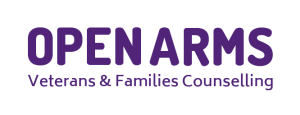Thriving in civilian life
If you've transitioned from full-time military to civilian life, many new opportunities and unique challenges may present themselves. Whether it's a month or a year since you left the ADF, it pays to know what help is available.
Supporting your transition to civilian life
Almost everything in the civilian world is different from the Navy, Army or Air force. From finding and paying for health care, to living arrangements or organising a job... you name it and it is different.
So when you transition, it's no surprise that you may be anxious about the new world you're living in.
Open Arms can support your transition to civilian life. Call 1800 011 046 to find out what services and supports are available to you and your family during this period and beyond.
Note: If you have been medically discharged, it is important to lodge a claim through MyService as soon as possible to access tailored DVA support programs, including rehabilitation services.
See also: Department of Defence transition guide
Your new identity
Your occupation helps define your identity, your sense of self-worth and your place in society.
Many veterans are unprepared for the loss of military identity in a well-defined hierarchy when they leave the ADF.
It can be a difficult adjustment to make, but support is available to help you deal with leaving the military and creating a new identity.
Take action
Contact Open Arms for counselling and workshops
Open Arms can provide confidential one-on-one counselling to talk through any issue you or your family may be dealing with.
The Stepping Out workshop can help you with issues related to personal and social adjustment following discharge. Stepping Out provides participants with the knowledge, skills and resources to successfully transition to civilian life.
This free workshop is considered ‘on duty at another location’ for current ADF members attending.
Call 1800 011 046 to find out how Open Arms can help you.
Your new community
The ADF is more than a job and a way of life, it's a community.
Leaving the ADF can mean losing your support networks and friends, even if you remain living in the same region.
Learning how to identify and build new social networks and supports can help you establish your new life after the ADF.
Leaving defence can also present great challenges for your spouse and children, including difficulty integrating into a new community.
Free and confidential counselling for you and your partner is available through Open Arms on 1800 011 046.
Take action
Enhance social connections
Use the social connection tool to identify people in your life who can offer you different kinds of support when you move to a new location.
When you’re starting out, you may want to focus on strengthening relationships with just a few people. Over time, you can work on building a wider support network by reaching out to other people in your community.
Engage in rewarding activities
Getting involved in activities that you used to enjoy in a new community is a great way to meet like-minded people.
Use the Enjoyable and rewarding activities tool in Hi-Res to help identify some activities that you might find enjoyable. This tool can also help you to plan how to get started.
Finding a new job
If you've been in the military for a while, you may not appreciate how valuable your skill set is. Or how employable you are. But finding employment outside the ADF isn't easy.
During your time in Defence, you may not have always had the posting you wanted, but you always had a job. The civilian world is different and may take some time to come to terms with.
Take action
Plan a new career
The Veteran Employment Toolkit is a practical guide to planning your transition to the civilian workforce, and recommended reading.
The Defence Force Transition Program provides transitioning members and their families with a broad range of programs to support transition to civilian life. This includes specific support to develop and achieve your post-transition career goals including goals related to paid employment, retraining, volunteering and other forms of meaningful engagement in civilian life.
Seek employment through recruiters that understand veterans
A good recruitment agency can advocate on your behalf and connect you to employment opportunities that match your skill set.
These recruitment agencies below were winners in the 2018 Prime Minister's Veterans' Employment awards. They understand the unique skill set veterans offer civilian employers.
WithYouWithMe is a veteran-owned tech company that helps veterans in their transition from the military into fulfilling new careers. The company has more than 1400 veterans in its program and has secured direct employment for around 300 veterans. Hundreds more have accessed their free training and mentoring before securing their own civilian employment.
Ironside Resources was founded in 2012 by Glen Ferrarotto as Australia’s first dedicated recruitment agency for veterans. Since then, Glen has paved the way for a large number of Australian veterans to access and develop long term, meaningful careers outside the ADF
Jobactive provides information tailored for veteran jobseekers and enables veterans to search for jobs that employers have flagged.
The medical system
The civilian medical system is different from the ADF system, from payments to the availability and location of services. It's likely that some services covered by Defence (i.e. health insurance and dental care) will incur an out-of-pocket expense in the community.
When you transition out of the ADF, it's important that you start establishing links to health professionals in your region. This will ensure you get the health and wellbeing support you need, and establish continuity of care.
To help your GP find the best treatment options for you, make sure you tell your GP about your military service, including places you've served.
Take action
Start with a GP
A GP can refer you to a range of health services. If you're visiting a GP for the first time, ask for the Veteran Health Check. The Veteran Health Check is a tailored health check designed to assess a veteran's physical and mental health.
Early intervention and appropriate referrals can help you stay well after your transition to civilian life. All former members are eligible for the One-off Veteran Health Check.
Find a GP or health professional in your community on health directs provider page.
Sort out your Veteran Card
All former ADF members who have served more than a day are entitled to a non-liability health care via their Veteran Card.
The White Card enables all veterans to receive treatment for any mental health condition, cancer (malignant neoplasm) and pulmonary tuberculosis.
A White Card may also enable the holder to care and treatment for:
- accepted injuries or conditions that are war caused or service related
- the symptoms of unidentifiable conditions that arise within 15 years of service (other than peacetime service).
To learn more about your entitlements, and arrange for a White Card, visit MyService.
Lodge a claim early
If you have been medically discharged from the ADF or left the ADF with an injury, lodge a claim through MyService as soon as possible. This will enable you to access a range of tailored health and wellbeing services and payments through DVA.
For help lodging a claim, find a certified advocate in your area on the accredited advocate register.
The earlier you lodge your MyService claim, the earlier you can access services through DVA.
A new place to live
If you joined the Navy, Army or Air force as a young person, you may never have had to find a house to call home.
Whether you're going to rent or buy a property, each state or territory is slightly different:
- Australian Capital Territory
- New South Wales
- Northern Territory
- Queensland
- South Australia
- Tasmania
- Victoria
- Western Australia.
In certain situations, DVA can help with emergency accommodation and crisis payments.
If you know a veteran in urgent need of complex emergency support, contact Open Arms on 1800 011 046.
Managing finances
Find out how to prepare your finances for life after the ADF, including budgeting and civilian superannuation, to secure your financial future.
Your family routines
When you leave the ADF, your family transitions too. Open Arms families page offers resources that may help keep your family healthy.
If you've been regularly deployed, or have spent periods away from home, living with your loved one's again can take some adjustment. For the veteran, partner and family members.
Support is available to help you strengthen relationships and build a strong resilient family after your service. In fact, they're key components to a successful transition.
Take action
Contact Open Arms for confidential counselling
Open Arms offers free and confidential counselling for you, your family and your children, to help you build positive relationships and adjust to new routines. Call 1800 011 046 for support 24/7.
Health and wellbeing
Maintaining fitness is compulsory in service. But staying fit and motivated can be hard when no annual fitness test hangs over your head or you're living within an easy walk of a 24/7 gym on base. Leaving this environment makes it harder to stay in shape, especially if a physical injury is thrown into the mix.
The benefits of physical activity and a good diet can't be overstated. They improve your mood, concentration, alertness and, of course, your health and wellbeing.
Establishing a new exercise routine and maintaining health is critical.
Take action
Find local activities and support where you live
Check out ENGAGE to find physical fitness, exercise and active lifestyle options in your area, including specialist activities for disabled or injured veterans.





